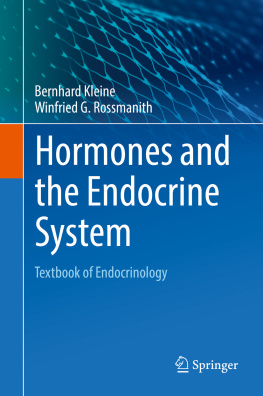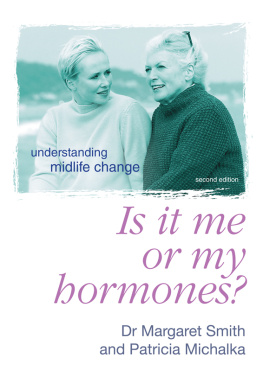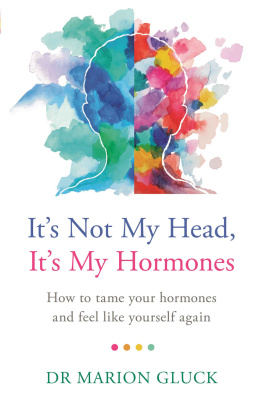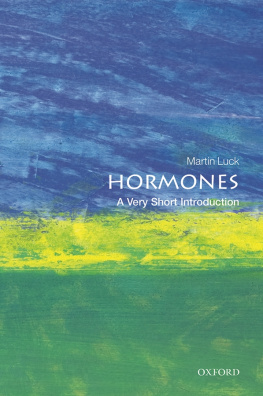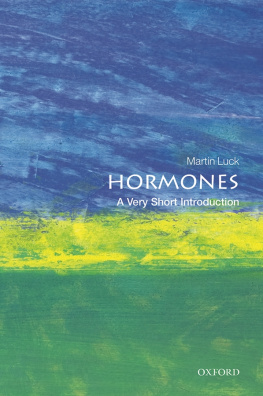Springer International Publishing Switzerland 2016
Bernhard Kleine and Winfried G. Rossmanith Hormones and the Endocrine System 10.1007/978-3-319-15060-4_1
1. Introduction
Bernhard Kleine 1 and Winfried G. Rossmanith 2
1.1
Zum Geleit Lass die Molekle rasen, was sie auch zusammenhobeln Lass das Tfteln, lass das Knobeln! Heilig halte die Ekstasen! (Christian Morgenstern, Galgenlieder )
Why? Endocrinology is the study of the mechanisms that regulate essential body functions such as reproduction, metabolism, water balance, feeding, and growth. Research in these fields is fascinating and has widened our view of human physiology. New drugs for the control of feeding and food uptake or sexual activity have reached the medical practice but have also resulted in a gray market for substances of doubtful efficiency. E-mail folders choke on pseudomedical spam. Neuropeptide Y, a nerve cell product which is involved in the generation of hunger, has been the focus of some 2,000 articles since the beginning of the millennium.
Since the introduction of molecular biological techniques into biomedical research, many old questions have been answered, and new questions have arisen. Today, the regulation of a cell is discussed on the level of gene activity and signal transduction from the surface to the nucleus. Endocrinologists have engaged in this new method and have thus acquired many new and sophisticated tools. Without these advances in molecular biological tools, could we have imagined, for example, that variants of the leptin receptor missing the part for signal transduction might still serve as a vehicle for leptin uptake through the bloodbrain barrier? In this book, we aim to integrate such new results into an enhanced understanding of endocrinology.
For Whom? If you like science, if you do not regard biology and chemistry as of satanic provenience, if you do not painfully avoid modern genetics, then you are the one for whom we wrote this book. If you are willing to delve into cell biology, the better. Basic knowledge of DNA, RNA, and proteins is very helpful. Any student of biology, medicine, or related areas is a potential reader. Anyone working in this field might consult this book for reference.
About What? After briefly looking into the history of hormones, we will dive into the basics of endocrinology: hormones and their receptors, not only from Homo sapiens and its close relatives, but also from invertebrate species such as flies and crayfish. Later we will deal with regulatory circuits fundamental for controlling blood pressure, water balance, digestion, or reproduction, all controlled by hormones. In the final chapters, we will present the endocrine system by its failures and look at the origins of endocrine-related diseases. A brief look at the use of hormones and their derivatives to boost performance in sport by means of doping completes the book.
1.1 Whom To Thank
We thank all the readers of our book in Germany who have helped by their critique to enhance the content and the design of our book. To all colleagues who have freely provided articles and manuscripts to expand individual chapters, thank you very much. Several friends read large parts of the manuscript and provided valuable comments. Thanks to all of you. A special thank you goes to Radivoj Krsti, who let us use the anatomical plates in his book Human Microscopic Anatomy for the anatomy of the endocrine active organs.
Springer International Publishing Switzerland 2016
Bernhard Kleine and Winfried G. Rossmanith Hormones and the Endocrine System 10.1007/978-3-319-15060-4_2
2. History of Hormones and Endocrinology
Bernhard Kleine 1 and Winfried G. Rossmanith 2
Medical history is built on traditions from the Middle East (Egyptian, Jewish, Arabian), the Far East (mostly Chinese), and Europe, with Greek, Roman, medieval, and modern elements. Because of geographical distances, language or religious communication barriers, or rejection of older traditions, the European medical community had to rediscover facts which were known in ancient Egypt, China, or Arabia a long time ago. Whether an endocrinological profession was known in ancient times may be doubted.
Below, we will separate ancient times, the new age, and modern times without any assessment in mind. The search for disease causes by scientific meanshypothesizing, performing experiments, refuting or corroborating the hypothesiswas established by the Greeks.
Table does not cover the richness of modern discoveries for lack of space. Therefore, we conclude the historical overview with the reevaluation of the hypothalamicpituitary portal system.
2.1 Ancient Times
Table 2.1
Historical summary
Year | Organ, action, hormone | Discoverer |
|---|
? | Role of testes in animal husbandry | Humans |
40003000 B.C. | Human ovariectomy | Ancient Egypt |
3000 B.C. | Amenhotep IV and acromegaly (?) | Ancient Egypt |
1600 B.C. | Seaweed and heated sponges for treatment of goiter | Chinese, mentioned by Plinius, Juvenal, and Galen (50 B.C. to A.D. 300) |
1550 B.C. | Diabetic polyuria and treatment | Egyptian papyrus |
460400 B.C. | Relationship between mumps and infertility | Hippocrates |
Relationship between galactorrhea and amenorrhea | Hippocrates |
A.D. 81138 | Description of diabetes mellitus | Aretaeus |
7th century | Sweet taste of urine in diabetes mellitus | Chen Chuan; rediscovered by T. Willis (1621) |
1135 | Sheep testis extract against male infertility | Hsu Shu-Wei |
1561 | Description of ovaries, oviduct, corpus luteum | Vesalius |
1563 | Description of adrenal glands | B. Eustachio |
17th century | Estrogens from urine | Chinese iatrochemists |
1664 | Pancreatic juice | R. de Graaf |
1772 | Report of acromegaly | N. Saucerotte |
1802, 1835, 1840 | Report of thyrotoxicosis | G. Flajani, R.J. Graves, and C. von Basedow |
1855 | Diseases of the adrenal cortex | T. Addison |
1864 | Report of acromegaly and pituitary tumor | A. Verga |
1865 | Description of the hypothalamus | J.B. Luys |
1869 | Pancreatic islet cells | P. Langerhans |
1893 | Langerhans cells producing hormones | |

